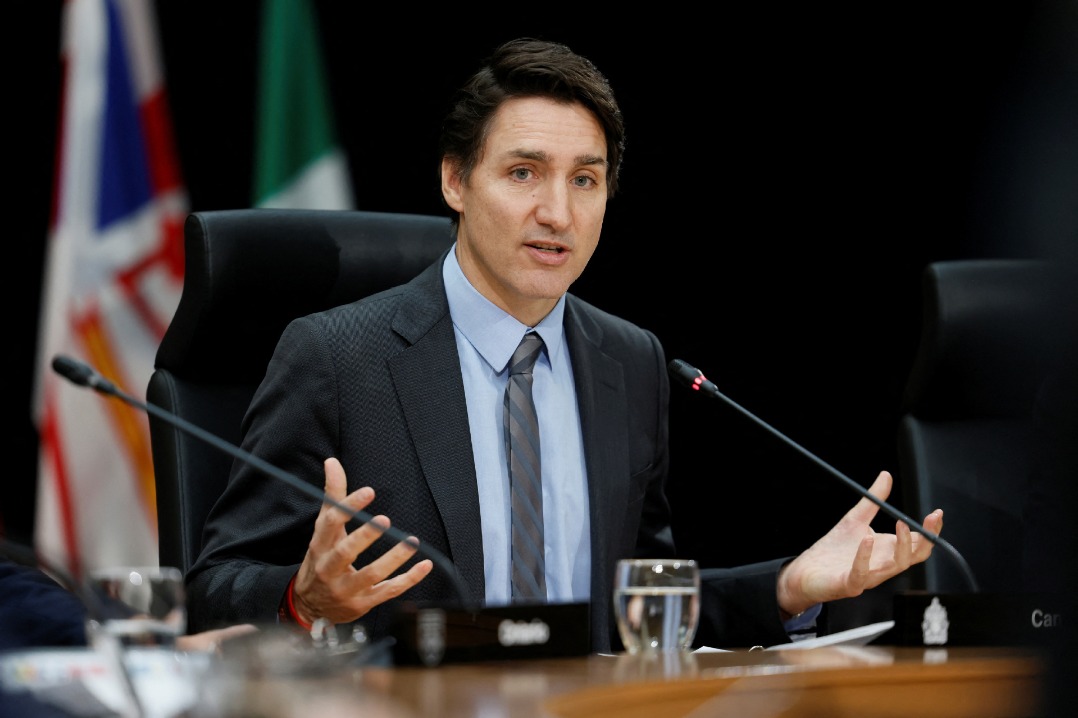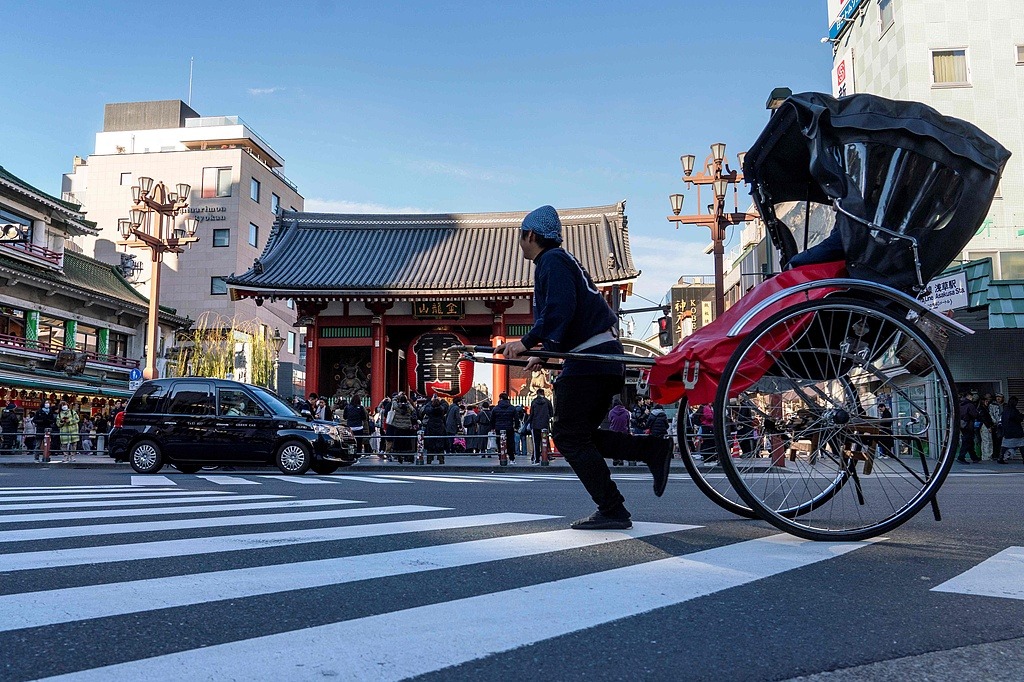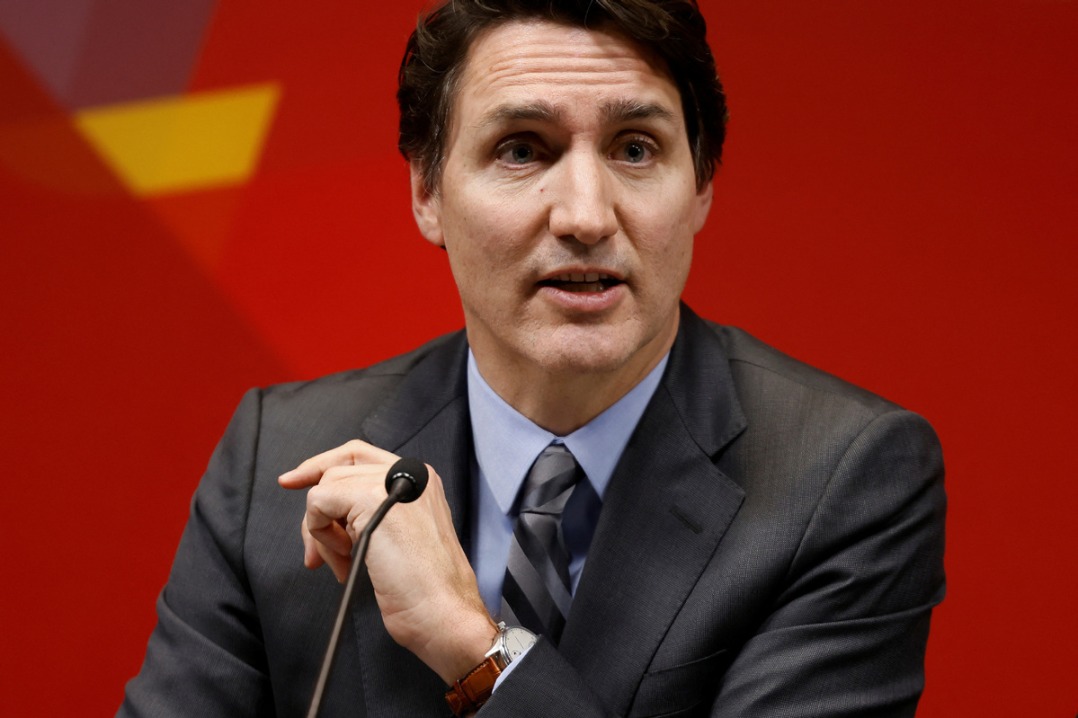Honoring commitments vital for US to advance ties

Honoring commitments is key for the United States to stabilize relations with China in the near future, and forming a proper perception of China will be needed to make the interactions sustainable, observers said.
They made the remarks as US Secretary of State Antony Blinken wrapped up his second visit to China in his current post on Friday.
Yang Tao, director-general of the Foreign Ministry's Department of North American and Oceanian Affairs, said at a news briefing on Friday that the latest round of official interactions is "frank, substantive and constructive".
During the three-day trip, which started on Wednesday, China made its position clear to the US on major topics involving Beijing's core concerns, such as strategic perceptions of China, the Taiwan question, trade, science and technology, the South China Sea and the US' "Indo-Pacific Strategy", according to Yang.
President Xi Jinping met with Blinken in a courtesy meeting on Friday afternoon.
The talks between Foreign Minister Wang Yi and Blinken earlier on Friday lasted for five-and-a-half hours.
The two sides reached a five-point consensus, including maintaining high-level exchanges and contacts at all levels, and announced that the first meeting of the China-US Intergovernmental Dialogue on Artificial Intelligence will be held.
China and the US also agreed to take measures to expand people-to-people exchanges between the two countries and to welcome students coming to each country for studies.
Wu Xinbo, dean of Fudan University's Institute of International Studies, noted that during the 10 months since Blinken's trip to China in June last year, the two sides have achieved progress in areas including high-level interactions and expanding mutual visits by ordinary people.
"However, some die-hard issues remain, as Washington has yet to change its fundamental perception of China as a rival. Its policy framework of holding back China has not changed, so it is true to its practice of aligning with allies to contain China," he said.
"The relationship is more stable compared with a year ago, but it is still vulnerable," he added.
During his meeting with Blinken, President Xi said that while each side can have its friends and partners, "it should not target, oppose or harm the other".
He added that the two countries should uphold their responsibility for world peace, provide the world with public goods, and play a positive role in promoting global unity.
Su Xiaohui, deputy director of the Department of American Studies at the China Institute of International Studies, said, "Following the latest strategic communications achieved in Beijing, realizing the fresh consensus will be key for the relations in the near future, and Washington should honor the consensus with more tangible sincerity.
"The message sent by Xi is clear about what the two countries should and should not do. If both sides succeed in following the advice, we will see a series of positive effects taking the relations further back on track and fostering mutual benefits," she said.
While the US has been behind the recent ups and downs in the South China Sea and the Taiwan Strait, "Washington is also worried about the prospect that the China-US ties may spiral out of control and the two nations may be dragged into a major confrontation", she added.
Following the summit between the two heads of state in San Francisco in November, the two sides have carried out a series of important dialogues at various levels and in various fields, including a visit to China by US Treasury Secretary Janet Yellen earlier this month.
In addition, San Francisco Mayor London Breed visited China from April 13 to 21, visiting five cities — Hong Kong, Shenzhen, Guangzhou, Beijing and Shanghai — in search of more opportunities for cooperation.
Diao Daming, a professor of US studies at Renmin University of China's School of International Relations, said, "As for Washington, great credibility is a viable path to make sure Blinken's China trip will not end up being in vain."
Forming a proper perception of China means that the US should realize "China's growth is good news and a great opportunity for the whole world's lasting development", Diao said.
?































